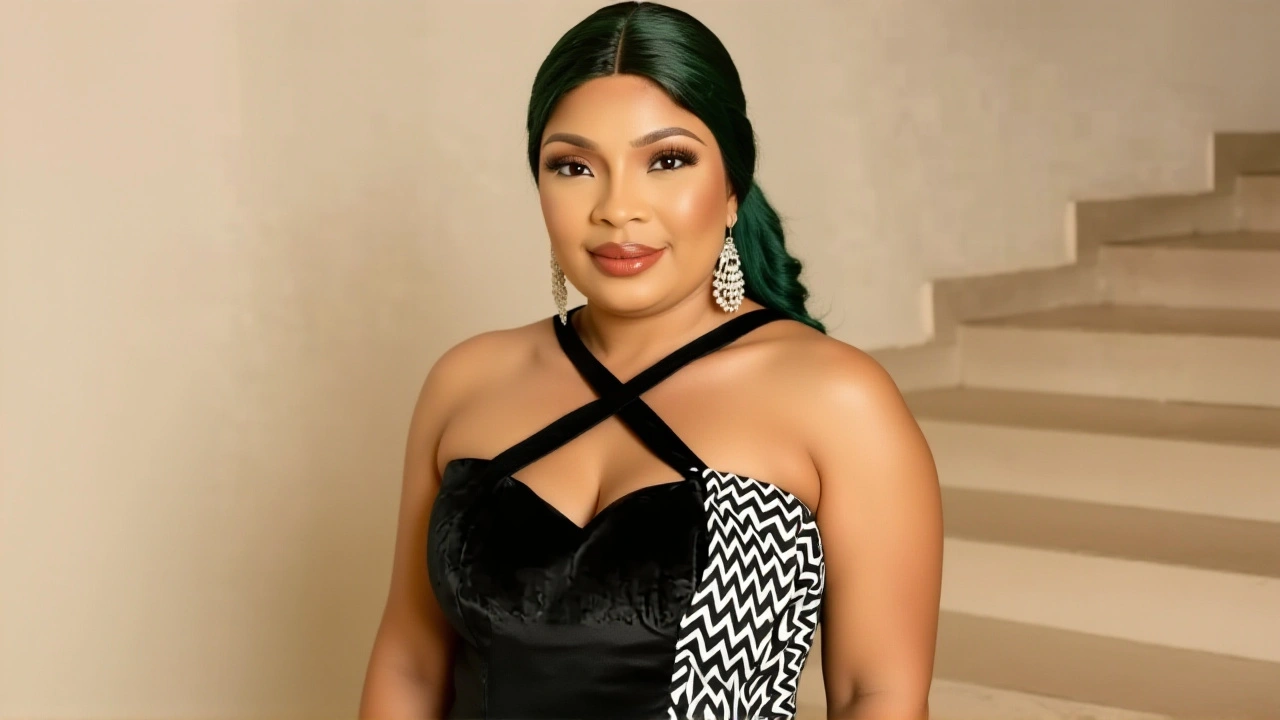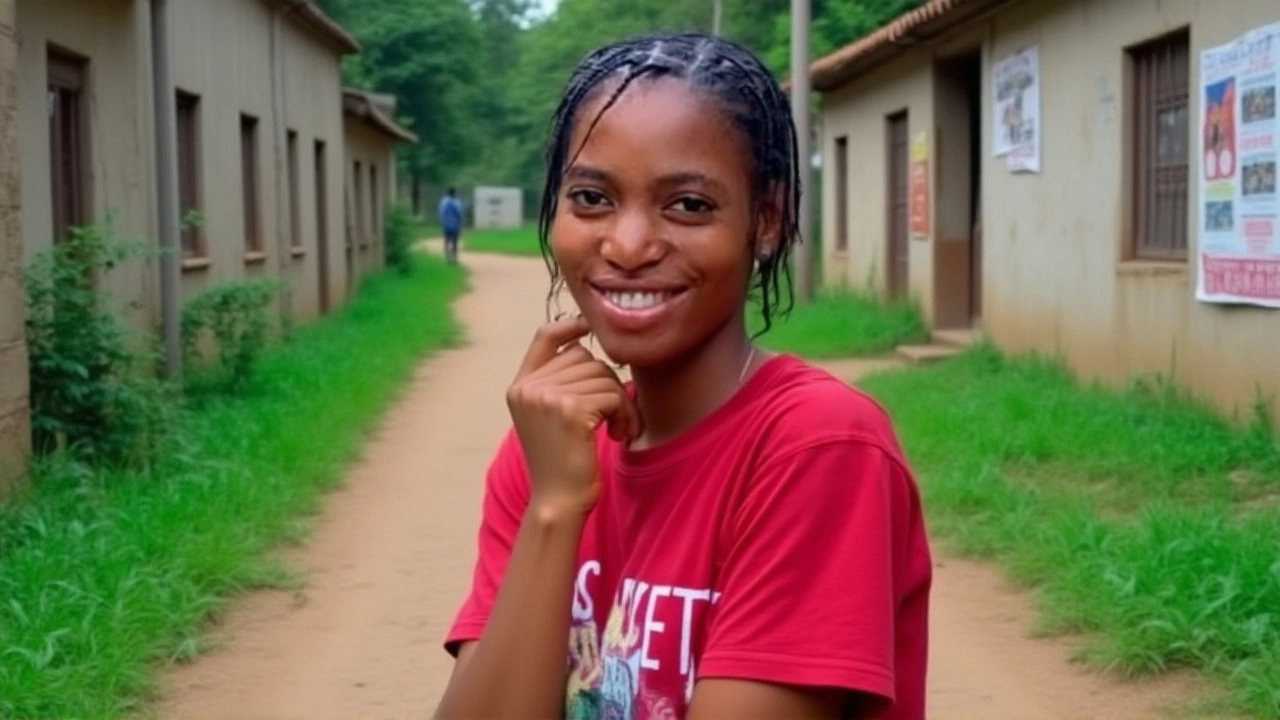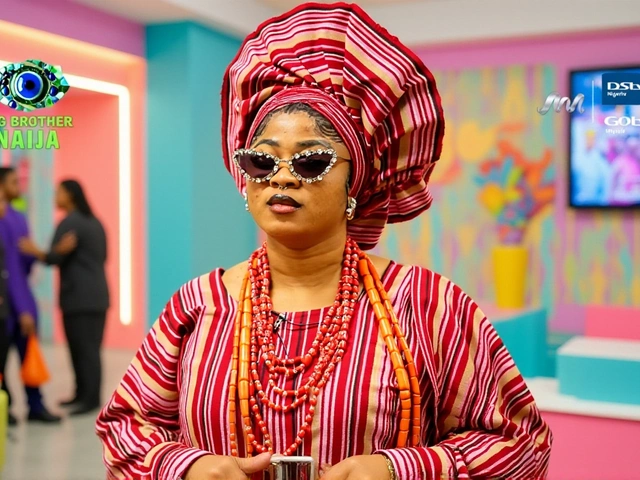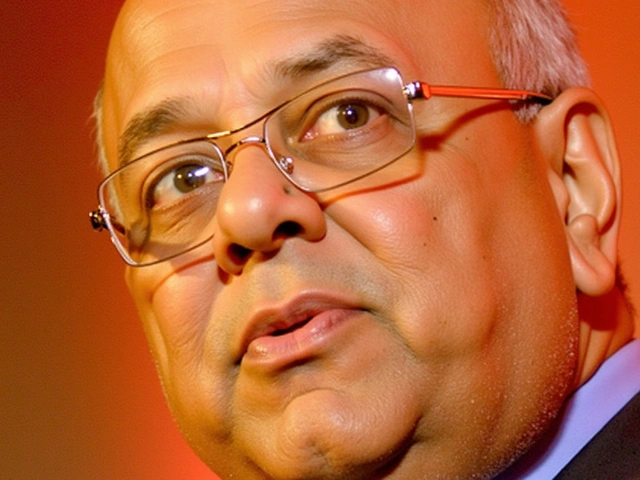When Laide Bakare, a Nollywood actress told Nollywood On Radio on 10 October 2024 that young, career‑driven women should consider having children early rather than waiting for marriage, the comment lit up Twitter, Instagram and the comment sections of The Nation Online. Her advice, framed as a survival strategy for the entertainment industry, instantly drew praise, criticism and a flood of memes.
Why the Advice Matters to a Two‑Decade Veteran
Bakare, now 44, has spent more than twenty years navigating the volatile world of Yoruba‑language films. She argues that an early family foundation can free an actress from the emotional roller‑coaster of later‑life marital drama, allowing her to focus on auditions, rehearsals and shooting schedules. "If you are aspiring to be a successful superstar as a young girl, I would advise you to get married and have kids early so that you can have the rest of your years to push your career," she said during the interview.
She later walked back the word "marriage," insisting that what she meant was simply "starting a family early." "I never thought of marriage when I had my first child, I just wanted a baby," she clarified in a follow‑up interview with the same outlet. This nuanced shift underscores a broader cultural debate in Nigeria about the separation of parenthood from legal unions.
Personal History That Shapes the Message
Bakare’s own story reads like a cautionary tale. Her first marriage was to Olumide Okufulure, a fellow actor she wed in the early 2000s. The couple welcomed their daughter Similoluwa Bakare in 2008, but the marriage dissolved amid accusations of infidelity and irreconcilable differences.
She later married Tunde Oriowo, a Lagos‑based businessman, in 2012. That union produced two sons but ended in divorce in 2018, leaving Bakare to raise three children on her own. The actress often points to those years—balancing single‑parenthood with shooting schedules—as proof that an early family can provide a stable platform for career growth.
Controversy Over Parenting Choices
Bakare’s candidness about family planning isn’t her only headline‑making moment. In October 2025, she attracted fresh backlash after taking 17‑year‑old Similoluwa to a Lagos nightclub. In a video posted by content creator Mr Lilgaga, Bakare explained she wanted to be the first to expose her daughter to nightlife, rather than leaving it to “peers or strangers.”
Public outrage was swift. Critics argued that a teenage girl, especially one still in secondary school, should not be introduced to such environments. Bakare responded with an Instagram video apologising, saying, "I am using the video to say sorry, Simi, sorry parents, that I feel wrong with that step. Please forgive me for the blunder." She stressed that she had not allowed her daughter to drink, merely wanted her to "see the environment" with a parent present.

Public Reaction and Media Framing
The two controversies—family‑first advice and the nightclub incident—have been amplified by Nigeria’s vibrant entertainment press. Headlines in Premium Times focused on the apology, while tabloids highlighted the “unconventional parenting” angle. Social‑media sentiment, measured by a quick poll on Twitter, showed roughly 55% of users disapproving of the nightclub outing, but a more divided view on her early‑family recommendation: 38% supportive, 42% critical, and the rest undecided.
Feminist commentators have lauded Bakare for challenging the entrenched notion that marriage is a prerequisite for motherhood. Others, however, warn that her advice could inadvertently pressure young women into motherhood before they are financially or emotionally ready.
Expert Insights: Motherhood, Career, and the Nigerian Context
Dr. Funmi Adeyemi, a sociologist at the University of Lagos, notes that Nigeria’s median age at first birth for women is 21.5 years, while the average age at first marriage is 28. "Bakare’s message aligns with a demographic reality—women are already having children before they marry," she explains, "but the question is whether they have the support structures to pursue demanding careers simultaneously."
Industry insider and casting director Chidi Nwankwo adds that producers often prefer actresses who are perceived as “stable” off‑set, citing insurance and scheduling considerations. "A single mother with a reliable support system can be a safer bet than someone juggling a volatile marriage," he says.

What’s Next for Laide Bakare?
Despite the storms, Bakare remains active on set and in the public eye. She recently wrapped filming for a new drama series set to premiere on DStv later this year. In promotional material, she emphasizes empowerment for women: "Your story is yours. Whether you choose marriage, motherhood, or both, own it on your terms." Whether her early‑family advocacy will reshape industry standards or simply add another voice to an ongoing conversation remains to be seen.
- Interview date: 10 October 2024.
- First child (Similoluwa) born: 2008.
- Divorces: 2015 (Okufulure) and 2018 (Oriowo).
- Nightclub controversy: October 2025.
- Upcoming series release: November 2025.
Frequently Asked Questions
How does Bakare’s advice affect young actresses in Nollywood?
Industry insiders say her suggestion could encourage production houses to consider single mothers as reliable talent, but it may also add pressure on women to start families before they feel ready, potentially limiting personal choice.
What legal differences exist between having children and getting married in Nigeria?
Nigeria recognises children born out of wedlock and grants them equal inheritance rights, yet unmarried mothers often face social stigma and may encounter challenges in securing child support without a formal marriage contract.
Why did Bakare apologise for taking her daughter to a nightclub?
Public outcry centred on concerns about teenage exposure to adult environments. Bakare’s apology acknowledged the misstep and clarified that no alcohol was involved, aiming to repair her image among concerned parents.
What is the broader cultural conversation sparked by Bakare’s statements?
Her comments have reignited debates on the separation of motherhood from marriage, the timing of child‑bearing for career women, and the societal expectations placed on female entertainers in a traditionally patriarchal society.
Will Bakare face any professional repercussions?
So far, producers have continued to cast her, signalling that the industry values her talent over controversy. However, advertisers may be cautious, and future projects could be scrutinised for alignment with public sentiment.








Sarah Graham
October 6, 2025 AT 20:31 PMEarly kids can be a blessing for career‑focused women.
Jauregui Genoveva
October 14, 2025 AT 09:09 AMShe’s got it all wrong 😂. Throwing kids into a career before you even know who you are is reckless.
Quinten Squires
October 21, 2025 AT 21:48 PMLook the data shows that women who have kids early often juggle more stress but also build stronger support networks which can actually boost productivity in the entertainment sector especially in Nollywood where schedules are tight and reliability is gold.
Tyler Manning
October 29, 2025 AT 09:27 AMFrom a patriotic standpoint, promoting early motherhood without the scaffolding of marriage undermines the cultural fabric that has sustained our nation for centuries; it is incumbent upon public figures to uphold familial stability rather than champion a fragmented social model.
james patel
November 5, 2025 AT 22:05 PMIn terms of talent acquisition pipelines, the presence of a dependent care infrastructure can act as a risk mitigation factor, thereby aligning with project management best practices within the film production lifecycle.
Scarlett Mirage
November 13, 2025 AT 10:44 AMLaide Bakare’s proclamation that women should prioritize parenthood over traditional marital timelines is nothing short of a cultural watershed, an assertion that reverberates far beyond the confines of Nollywood. By decoupling child‑bearing from the legal bond of marriage, she implicitly challenges entrenched patriarchal expectations that have historically dictated female agency in Nigeria. Her personal narrative-marked by two divorces, single‑parenting responsibilities, and a relentless work ethic-offers a lived case study that many aspirants might find both inspiring and cautionary. Statistically, the median age of first birth in Nigeria hovers around twenty‑one, while the average first marriage occurs nearly a decade later, a disparity that underscores the demographic relevance of her advice. From an economic perspective, early motherhood may furnish a form of social security, allowing women to anchor their careers while their children are still young and less financially demanding. Conversely, the absence of a stable marital partnership can exacerbate financial strain, as single mothers frequently navigate childcare costs without the benefit of spousal income. Industry insiders, such as casting directors, have noted that a dependable support system-whether familial or communal-can translate into more reliable shooting schedules and reduced insurance premiums. Yet, the romanticized notion that motherhood alone can substitute for the emotional and logistical support traditionally provided by a spouse is overly simplistic. Critics argue that such messaging may inadvertently pressure young women into motherhood before they have attained academic qualifications or professional experience. The societal backlash to Bakare’s nightclub episode further illustrates how public figures are held to divergent standards when navigating parental duties. Her apology, though sincere, did little to quell the concerns surrounding adolescent exposure to adult environments, a debate that remains salient across many cultures. Nevertheless, her steadfast emphasis on empowerment-declaring that ‘your story is yours’-resonates with a burgeoning feminist discourse that seeks to reclaim narrative ownership. In the broader context of African media, such declarations can catalyze policy discussions about maternity leave, childcare subsidies, and the institutional support required for working mothers. Ultimately, the sustainability of her advice hinges on the development of robust community networks, governmental initiatives, and industry practices that collectively buffer the challenges of single parenthood. Whether Laide’s stance reshapes Nollywood’s hiring conventions or simply adds another voice to an ongoing conversation, it undeniably sparks a necessary examination of gendered expectations in the modern workforce.
Ian Sepp
November 20, 2025 AT 23:23 PMIt is prudent to assess the systemic support mechanisms before endorsing early parenthood as a universal career strategy.
Lois Parker
November 28, 2025 AT 12:02 PMSounds like a tough balance.
Lerato Mamaila
December 6, 2025 AT 00:40 AMIndeed, the intersection of cultural heritage, familial expectations, and professional ambition creates a nuanced tapestry, one that cannot be reduced to a single prescriptive formula, especially within the rich diversity of African societies.
Dennis Lohmann
December 13, 2025 AT 13:19 PMLet’s remember that every woman’s journey is unique 😊. Support systems matter, no matter the path.
Jensen Santillan
December 21, 2025 AT 01:58 AMThe discourse surrounding Bakare’s stance is emblematic of a broader epistemological crisis within contemporary media studies; her narrative is simultaneously a symptom and a catalyst of a hyper‑mediated culture that valorizes sensationalism over substantive analysis. One must interrogate the phenomenology of public outrage, the algorithmic amplification of controversy, and the resultant epistemic fragmentation that erodes nuanced dialogue. Moreover, the capitalist imperatives driving Nollywood’s production ecosystem inevitably shape the framing of such stories, privileging marketable shock value over pedagogical depth. Consequently, any critique must situate Bakare’s commentary within this dialectical matrix, acknowledging both her agency and the structural forces that commodify her pronouncements.
Mike Laidman
December 28, 2025 AT 14:36 PMWhile the points raised are valid the article could have been more concise.
J T
January 5, 2026 AT 03:15 AMYo, the whole “kids first” thing sounds like a quick grab for clicks 😂.
A Lina
January 12, 2026 AT 15:54 PMThe argument presented by the aforementioned actress lacks empirical rigor; without robust longitudinal data, any policy recommendation remains speculative at best.